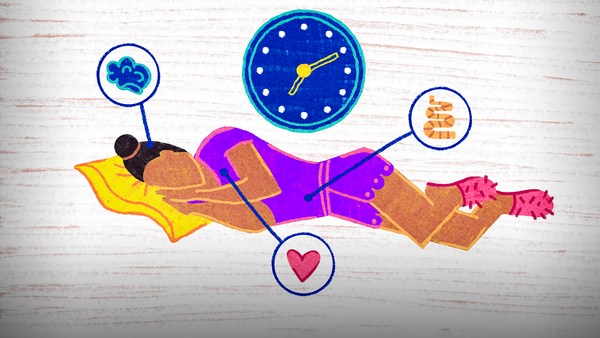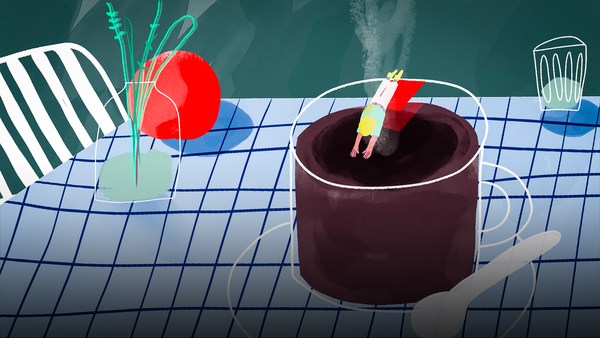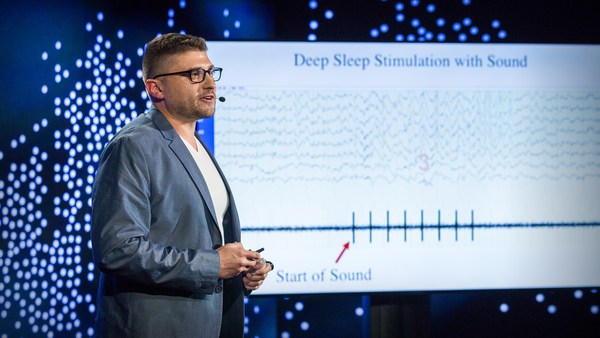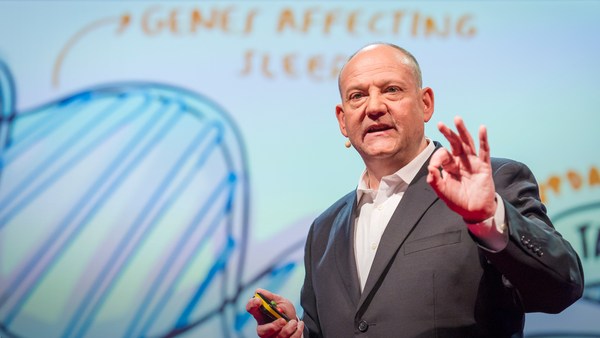Are we designed to nap during the day?
[Sleeping With Science]
Most people aim to get their recommended seven to nine hours of sleep in one long stretch at night. And the technical term for this is “monophasic sleep.” In other words, a single bout of sleep at night. However, we may not have been programmed to sleep in this way.
Now I'm sure you've had that experience of a drop in your alertness in the afternoon, where you start to feel a little sleepy. And you can also see it in other people as well, as their heads begin sort of bobbing up and down during afternoon meetings. Now you may think this afternoon drop in your alertness is because of a big lunch, but in actual fact, it seems to be hardwired. Because if I place electrodes on your head, there is a reliable, preprogrammed drop in your brain’s alertness during the afternoon. And it happens to most of us somewhere between the one to four pm mark.
What this suggests is that we may have been designed to sleep in a biphasic pattern, meaning one longer bout of sleep at night and then a short afternoon nap during the day, very much like the siesta cultures around the world.
But is napping always a good thing? Well, not necessarily. Although we and other scientists have discovered that naps can have benefits for both the brain and for the body, naps can be a double-edged sword. Long naps in the afternoon or in the early evening can just take the edge off your sleepiness. It's a little bit like snacking before your main meal.
So if you are struggling with sleep at night, the best advice is not to nap during the day. Instead, build up all of that healthy sleepiness so that you give yourself the best chance of falling asleep easily and then staying asleep soundly across the night.
But if you're not struggling with sleep and you can nap regularly during the day, the naps of around 20 minutes taken early in the day can be just fine.





